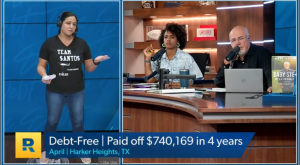Saving vs investing – Which One and When?
If you have some extra cash and you need to decide on saving vs investing it, the decision does not depend on the amount of money you have. Nowadays, investing is more accessible, and even small amounts can be invested through apps with no transaction fees and low ongoing costs. The most critical factor to consider is time, not the dollar amount you have, according to Stuart Ritter, retirement insights leader at T. Rowe Price. If you need the money within the next three years, save it; if you won’t need it until after that time, consider investing in something that will grow more, such as stocks or bonds.
However, saving is essential to consider because it ensures the balance you deposited, plus a small amount of interest, is guaranteed, and the funds are insured in case the bank fails. Additionally, you can use the money anytime without worrying about losses or ending up with a tax bill. In today’s economic climate, the interest on savings is insufficient to keep up with inflation rates. Therefore, investing is an option many people who have never invested before are considering. Though not a guaranteed return, investing provides protection similar to FDIC insurance against institutional failures. If your holdings’ value goes down, you won’t be protected against loss, and you have to be prepared for that reality.
To decide on saving vs investing, you must first settle on a goal and pick an account that will help you meet that goal. For money you need this month, put it in a checking account. For emergency savings of six months, set aside cash in a high-yield savings account. Automate your savings and direct a portion of your paycheck or set up an automatic deduction once it hits your checking account. Finally, keep your high-yield savings account separate from your checking account at a different bank to keep your regular spending separate.

Saving vs Investing – The big difference is time horizon.
If you have money that you want to spend in about 10 years, and your monthly expenses are covered along with six months of emergency savings tucked away, investing could be a good option. To begin, assess your feelings about money and risk by taking a risk tolerance survey or considering questions like “Would it bother you more to have 100% in cash and see the market go up, or have 100% in the market and see it go down 29%?” Once you have an understanding of your risk tolerance, you can choose a portfolio that fits your needs, such as a mix of 60% stocks and 40% bonds.
Investing is relatively easy and can be done with a few clicks online using a brokerage account or robo advisor service. If you’re saving for retirement, it’s important to take advantage of a 401(k), 403(b), or IRA account. Make sure to fill your workplace plan, or contribute at least as much as your employer matches. Consider setting up automatic contribution escalation and aim to save at least 5%. If you don’t have access to a company plan, start your own IRA or Roth IRA at an investment firm and invest up to the yearly limit set by the IRS. Keep your investments simple, with just two or three funds like a general stock fund, a bond fund, and an international fund. Even if retirement seems far off, you’ll benefit from compound interest over time.
During your sessions with your Las Vegas financial coach we’ll take a deep dive on this topic and working together we’ll come up with the right strategic mix for you.


